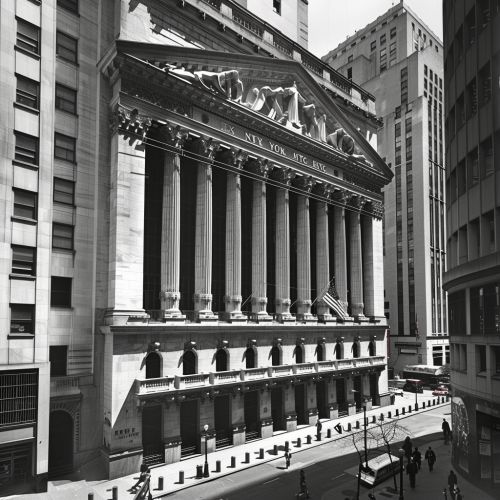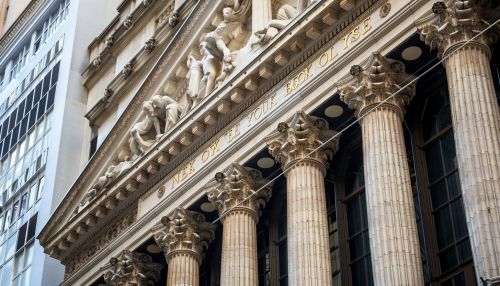New York Stock Exchange
History
The New York Stock Exchange (NYSE) is one of the world's leading stock exchanges, located in the Financial District of Lower Manhattan in New York City. It was founded on May 17, 1792, when 24 stockbrokers signed the Buttonwood Agreement, establishing a marketplace for the buying and selling of securities.


The NYSE was initially a private organization, operating without government oversight. However, in the wake of the Stock Market Crash of 1929, the U.S. government established the Securities and Exchange Commission (SEC) to regulate the stock market and protect investors.
Trading
Trading on the NYSE is conducted through a unique system known as the Open Outcry method, where human brokers and traders use verbal and hand signal communications to buy and sell securities on the trading floor. However, with the advent of technology, the NYSE has incorporated electronic trading systems, which now account for a significant portion of the trading volume.
Listed Companies
The NYSE lists a wide range of companies, from small-cap to large-cap. As of 2020, the NYSE had 2,400 companies listed, representing over $21 trillion in total market capitalization. Some of the world's largest and most influential corporations, such as IBM, ExxonMobil, and Walmart, are listed on the NYSE.
Market Indices
The NYSE is associated with several market indices, including the Dow Jones Industrial Average (DJIA), the S&P 500, and the NYSE Composite Index. These indices provide a snapshot of the overall health of the stock market and are widely used by investors and financial analysts.
Regulation
The NYSE is regulated by the SEC, which oversees all U.S. stock exchanges. The NYSE also has its own regulatory body, the NYSE Regulation, which is responsible for enforcing the exchange's rules and regulations.
Impact on Economy
The NYSE plays a crucial role in the U.S. and global economy. It provides a platform for companies to raise capital through the issuance of stocks, which can be used to fund expansion, research and development, and other business activities. The NYSE also provides a marketplace for investors to buy and sell securities, contributing to the overall liquidity of the financial markets.
